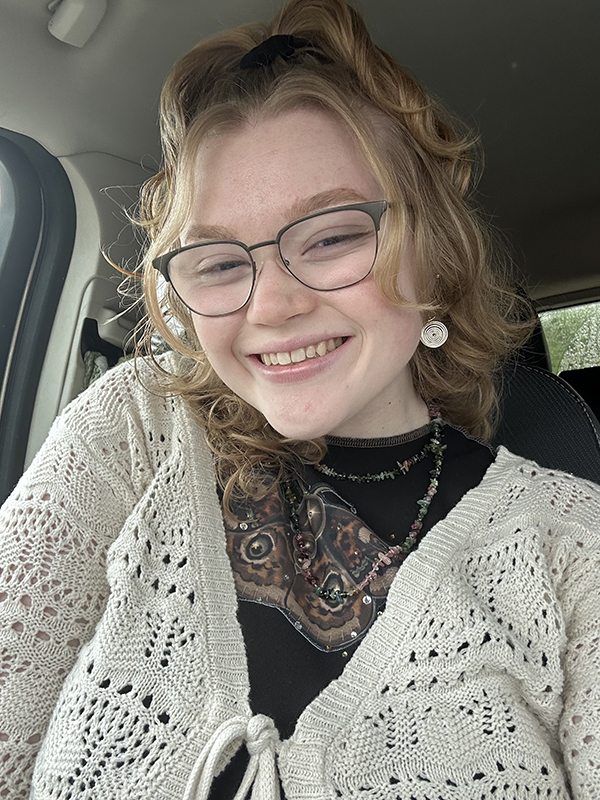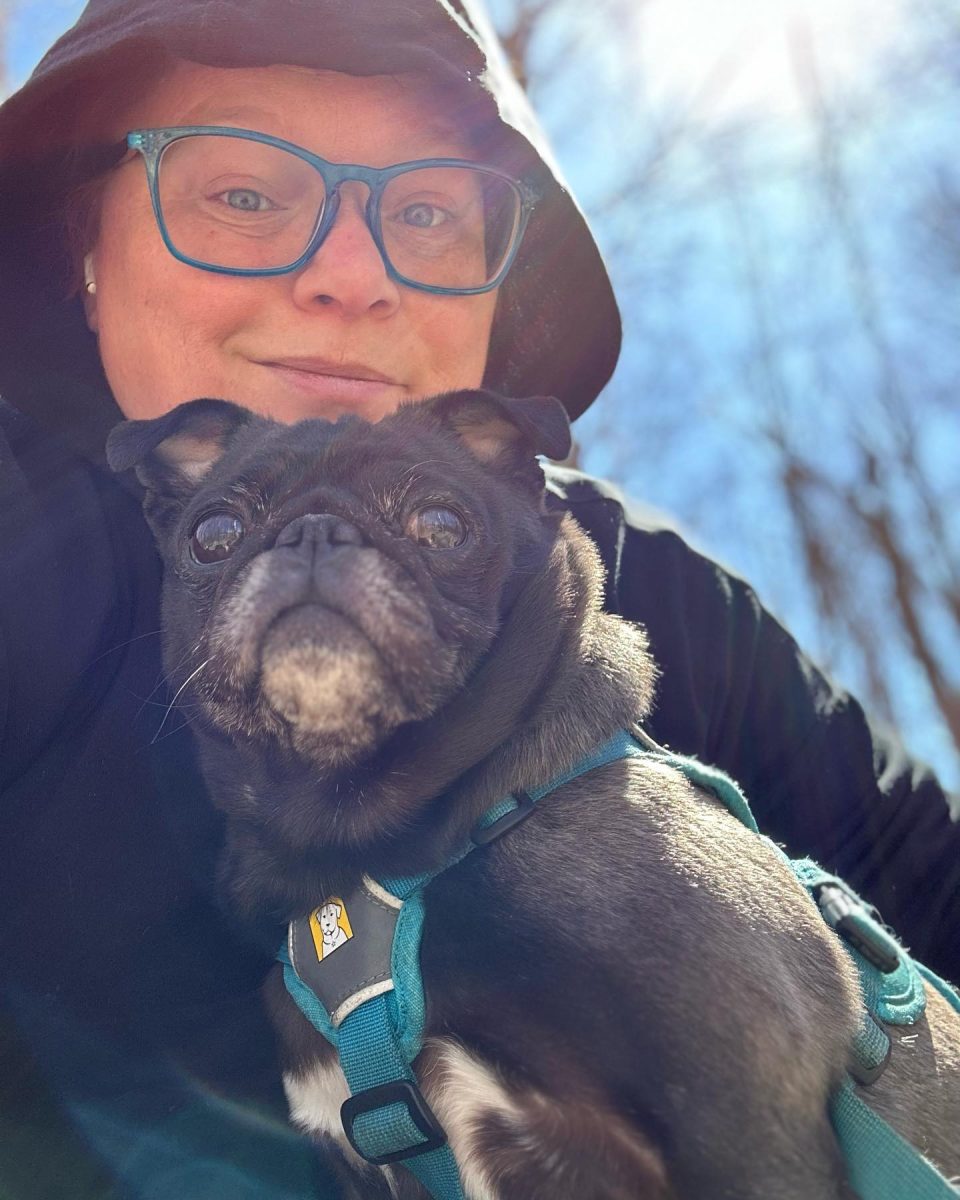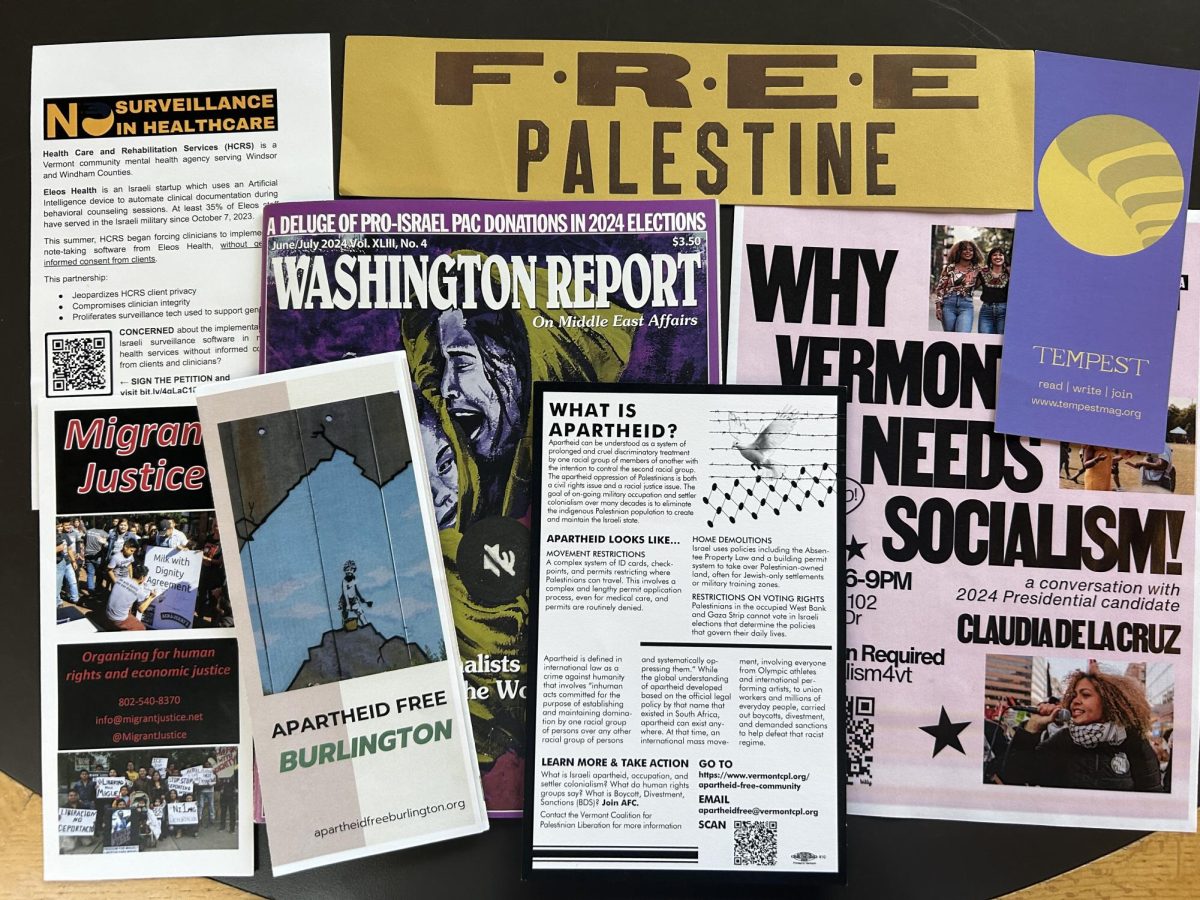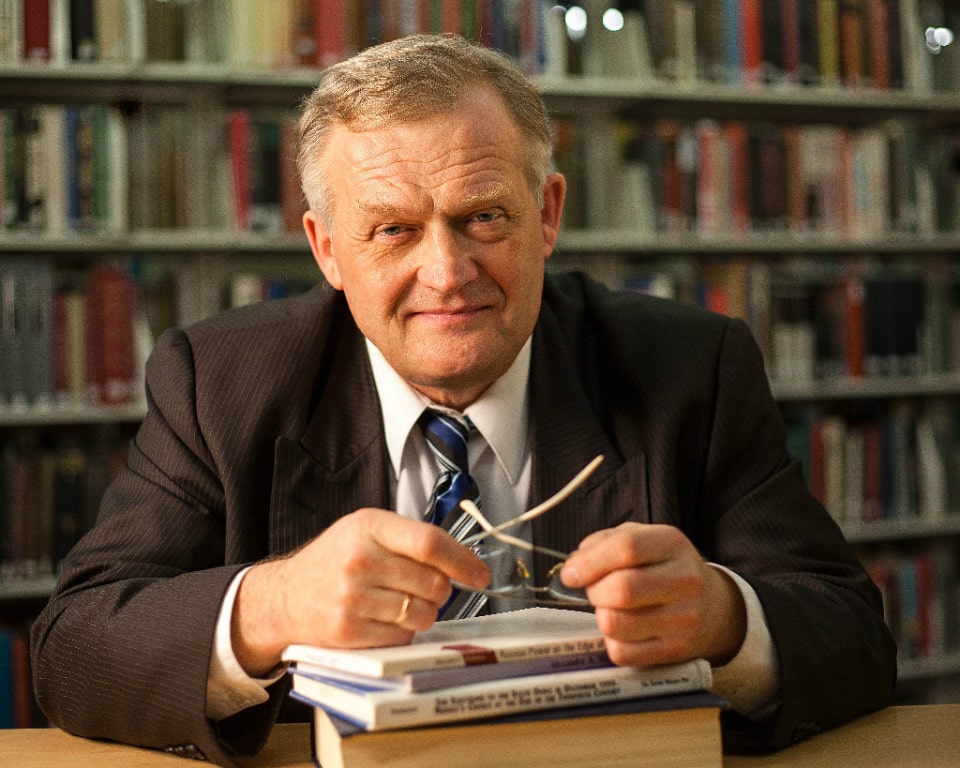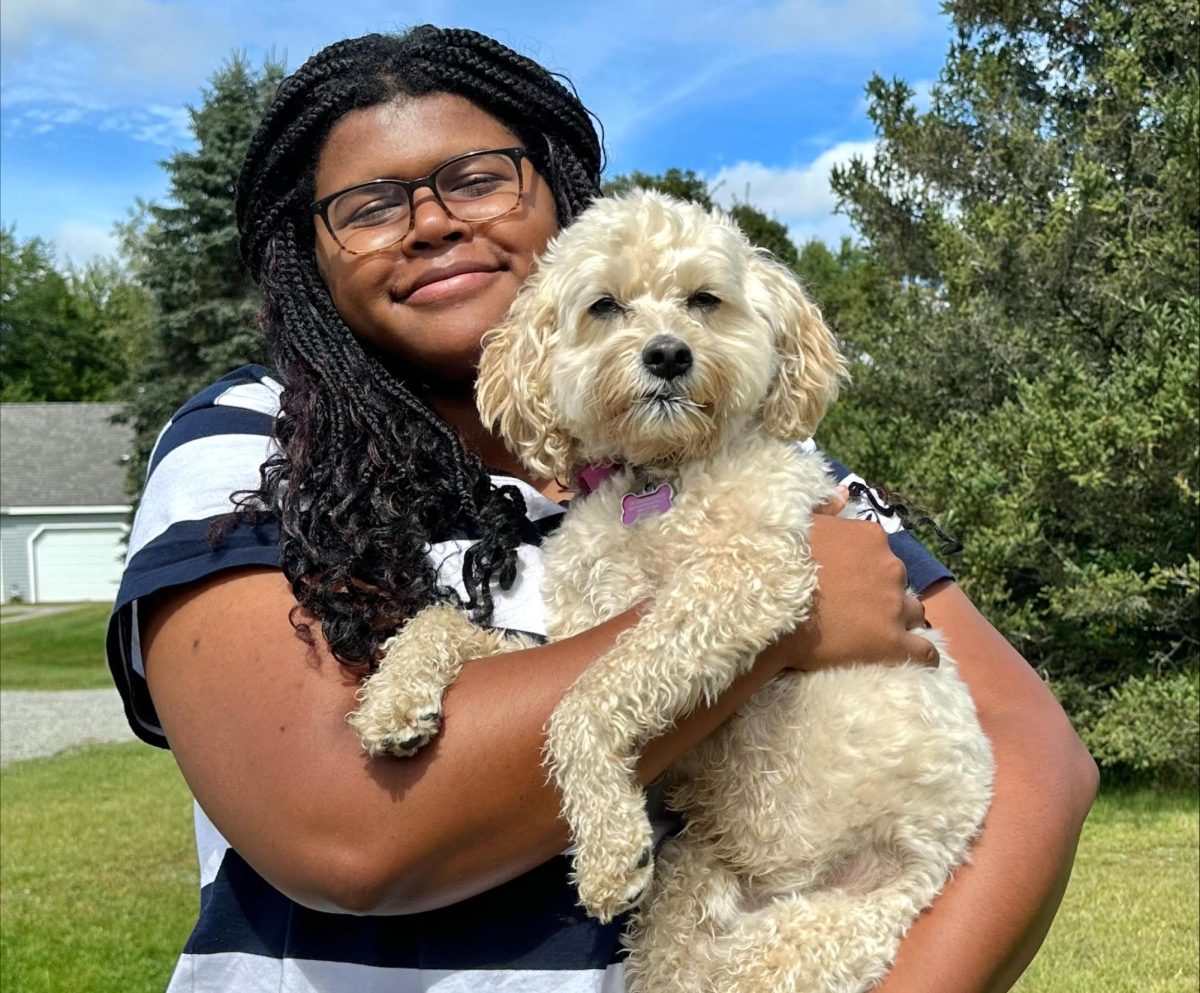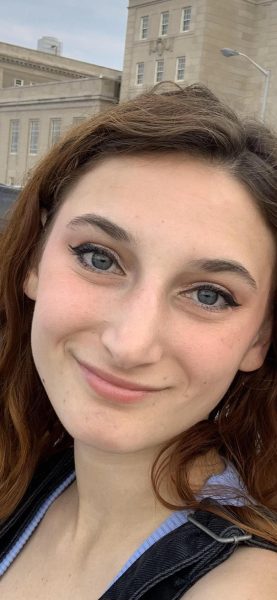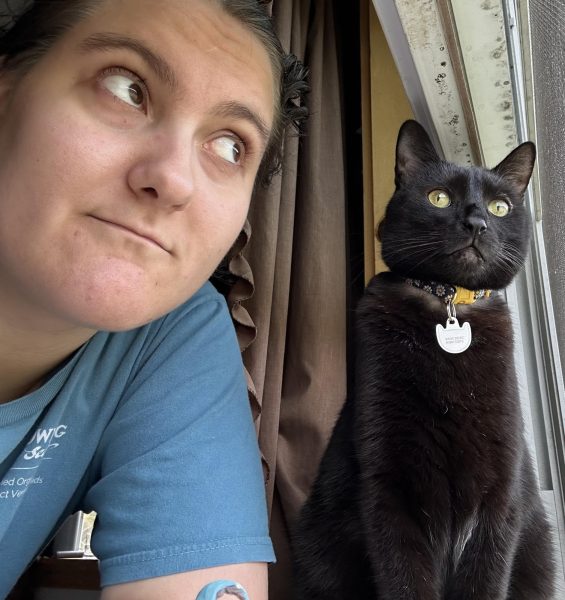In our modern-day society, especially with the invention of the internet, connecting with people from across the globe and cultures has never been easier and more accessible. However, before our time, some of our parents found ways of doing what we take for granted – making connections beyond our own communities, and meeting people from all over the world.
The hosts of the podcast They Said, They Said — Jill and myself (Sage) — do indeed have such parents, and with differing cultures and religions playing into our development and growth, we thought it would be interesting to compare and discuss these differences in our lives.
My mom is a former Catholic and my dad is Orthodox-Christian. My uncle is Muslim and so are my first cousins. Jill has a Quaker mom and Jewish dad. Our experiences are complicated. In our first episode, “Growing Up Multi-Ethnic,” we discuss navigating life in religious, ethnic, and cultural ways, alongside our own thoughts and feelings about growing up in multi-ethnic families.
The full podcast episode can be found on the YouTube channel They Said, They Said! It’s also available below. But if you’d like to get our general thoughts, which are significantly less rambling, they are summarized here. That said, I would recommend listening to the podcast along with reading the summaries below, as both provide context for each other.
Sage
My mother is a French-Canadian and Indigenous (Abenaki) woman who, up until her years in college, had spent most of her life in a small village in northern Vermont. Since then, she’s lived in and traveled to so many places. She speaks multiple languages (English, Serbo-Croatian/Bosnian, French, Italian, some Japanese, and is learning German) and is genuinely one of the smartest people I know. She grew up Roman Catholic, and while technically still considered Catholic, in her adulthood she left the Church due to her own personal issues with it. She didn’t grow up with a lot of money, and was definitely considered poor.
My father is from across the pond, and his family fled from the civil war in Bosnia in the 1990s. A lot of our Bosnian community here in Vermont are refugees. He grew up in Beograd, Serbia for the first few years of his life before moving to Banja Luka, Bosnia and Herzegovina, where he spent a majority of his childhood and early adulthood. He left to join his family, who emigrated to the United States during the Bosnian War. He came to the United States with little knowledge of English and, while he wasn’t considered poor before, he was definitely considered poor at that time.
My parents met in the late 90s at a party, and the two began dating a few months later. They got married in 2000, three months before my birth. As children, my sister and I spoke French and Bosnian and only learned English at school. We didn’t grow up with a lot of money, and in the United States we were considered poor. However, my family has also moved to and lived in three other countries: Serbia, Ukraine, and Bosnia and Herzegovina. Moving to these different places changed a lot about us, but it also affected our social-economic standing. Because the above countries are classified as ‘third world’ by a lot of people, any money we made was more than what people typically made. We would have been considered middle class in these countries, like most of the people there. From my own memory, it didn’t seem like there was a massive wage gap between myself and the people around me.
However, I struggled a lot in Europe, regardless, and it mostly had to do with my identity. I was 12 when we left Ukraine and moved to Bosnia, and by that age I was starting to learn more about myself. Bosnia is not exactly a welcoming place for people like me (i.e.. very transgender and very gay and very closeted.) So, when I thought I was safe, I was often forced back into the closet. Bosnia is also very religiously conservative. I lived in a primarily Serbian-Orthodox Christian setting, and so homophobia was rampant. I recall one time when my mom literally had to pull me aside and ask me not to tell people I was bisexual because she was afraid that I would be beaten and possibly killed. I felt alone, with little to no friends. I lived among and with abusive people, who didn’t help my mental health in the slightest. I began to loathe Bosnian as a language, the people around me, and myself. I did okay in school but barely put in the effort, and the only friends I had in real life I didn’t spend that much time around.
However, I think it was when I really began interacting with Americans online that I developed a stronger love for my cultural background. A lot of Americans never get the chance to travel, let alone live anyplace else besides, well, America. Both of my parents could only get us so far because they seized opportunities when they could, and both are very good people at heart. Living in so many places, meeting so many interesting and diverse people, and seeing so many cool things (the cliffs off the Dalmatian coast, Sevastopol, the art at the Louvre, the waterfalls of Plitvice, Sarajevo itself, the endless wheat fields of Ukraine, a day where the sun only set for 4 hours in Stockholm, the food in Kenya, and so much more) made me appreciate how different people could be.
And moving back to the United States at 18 made me miss a lot of the things I took for granted in Europe (stable healthcare, public transportation, multi-culturalism, etc.). But I also started my journey proper to reconnect with my Yugoslavian and Abenaki roots. I’ve developed a fonder appreciation for it. Hell, I’m not even Muslim and I’m trying to fast for Ramadan, but it is important to my Bosnian family and friends here, so I care. My Abenaki heritage is becoming more and more accessible to me, especially since I’m living in Vermont. And a few months ago, I got my citizenship as an Abenaki member! I’m very much an atheist, but I’m starting to have a greater respect for other people’s religions and spiritualties. I think of myself as someone who is “metaphorically spiritual” if that makes any sense.
I’m very happy I grew up the way I did – meeting people from all walks of life and discovering more about myself on the way. From my perspective, I am happy that I grew up multi-cultural.
Jill
My mom grew up in a Quaker household, attending Quaker meeting every Sunday, in a small borough fifteen minutes outside of Philadelphia called Narberth. Her father played viola (2nd chair) for the Philadelphia Orchestra and a few other smaller orchestras later in life, while living in Florida. He was raised Quaker and the religion goes far back in the family. My mother’s mother was a secretary (it was the 50s and 60s) for the Philadelphia Ballet, which, at the time, was the Pennsylvania Ballet (founded in 1963). She was raised Protestant, in Rhode Island, and that follows back to family in Ireland, England and Whales (you can do the math).
My dad grew up in a Jewish household. Both of his parents were born in the United States, but were the children of immigrants. Most people would assume World War II, but my grandfather would have been in his 20s at that point, so think a little further back to World War I (instead of the Germans forcing Jews out of their homes it was the Russians). Both of my paternal grandparents were raised Orthodox (strict rules about everything), but he and his two older brothers were raised Reformed (chill, not as strict rules). My grandfather was a well-known Psychiatrist (almost a Rabbi instead) who wrote many books (like father, like son – see story Deconstructing Anxiety). His mother was a social worker.
My parents met through an ad my dad had put in the newspaper — dating websites didn’t exist, computers barely existed. They lived around the corner from each other and never even knew. It’s a cute story but it’s not really on topic. They have been married for 25 years and I was adopted about three and a half years into that marriage.
I grew up attending Quaker meeting and only have been to a synagogue a few times and mainly for Bar/Bat Mitzva, an event for Sukkot with family friends who were half Jewish half Christian, and I think once or twice when I was very little and spent the night at my Orthodox aunt and uncle’s house. I celebrate Channukah and Christmas and acknowledge a few other Jewish holidays like Rosh Hashanah, Sukkot and Passover, but don’t really celebrate unless invited by people who do.
I didn’t ever care about religion growing up, but it was much easier to tell people that I was Jewish than to tell them I was Quaker because it’s not a widely known religion and I would often get questions I didn’t know how to answer. When I tell people I’m Jewish it’s just left at that, no further questions. When I tell people I’m Quaker I usually get a response around the lines of “Oh? Like the oats?” Which, honestly, is so annoying and disrespectful. When people tell me that they are Catholic or Christian I don’t say “Oh? Like that guy on the cross?”
I’m grateful that I grew up in a household with two religions because I learned a lot about different beliefs and how they can still go hand in hand. I can’t say that the way that I was raised made me who I am, because Quakers believe in peace and love and I am a pessimist who plays violent video games to calm down. I love who I am today and how my parents’ values and morals have shaped me, even if the religions I was raised with did not.



